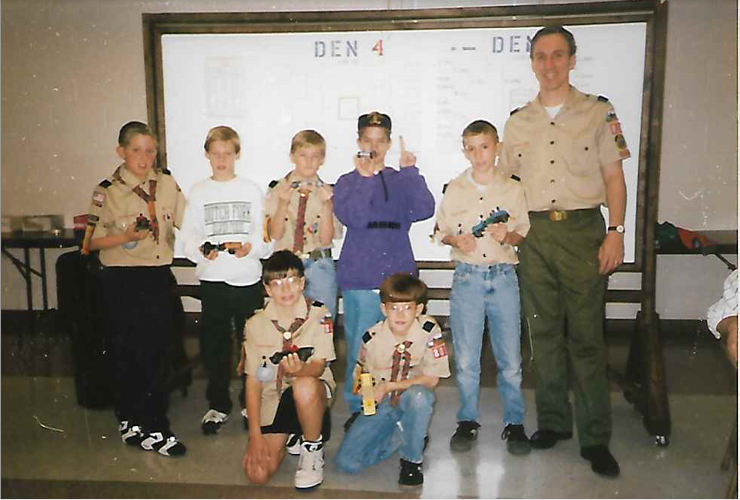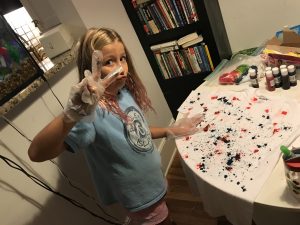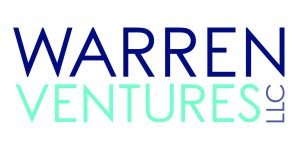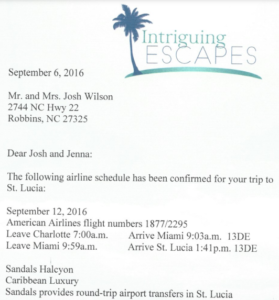I learned early on in scouts how to give CPR, and like a true boy scout, I carried around for a long time a mouthpiece that they gave us. That way, if the victim was about to throw up on you when you were giving them CPR mouth to mouth, it would protect it from coming in your mouth.
I remember out back of the scout hut at Union United Methodist, we practiced how to make campfires in the rain. We had little stations set up in the area behind the shed and we would have to go out into the woods to gather sticks and material. We were trained to look for material that was dry. Maybe it was hiding under a downed log, anything dry would burn, then once you get it up and roaring…and maybe had a few coals, you were good to burn pretty much anything you wanted. Great lesson.
Dr Dowda taught us the importance of a one handed, eyes closed, opposite hand bo-line knot. That way if you had fallen in a pit down deep, couldn’t see anything, maybe were blind, broke your right hand, since I was right handed, and someone threw you a rope. You needed to be able to put it around your waste and tie a knot that could then pull you out of the hole.
Dr. Dowda taught us how to do the Heimlich, treat burn injuries and CPR. I learned early on about generators, magnets, coil wire and a bulb
When I was a Wolf scout, I remember dad encouraged me to try and get the God and Country metal/award. I worked hard to get this, and it helped to shape my childhood.
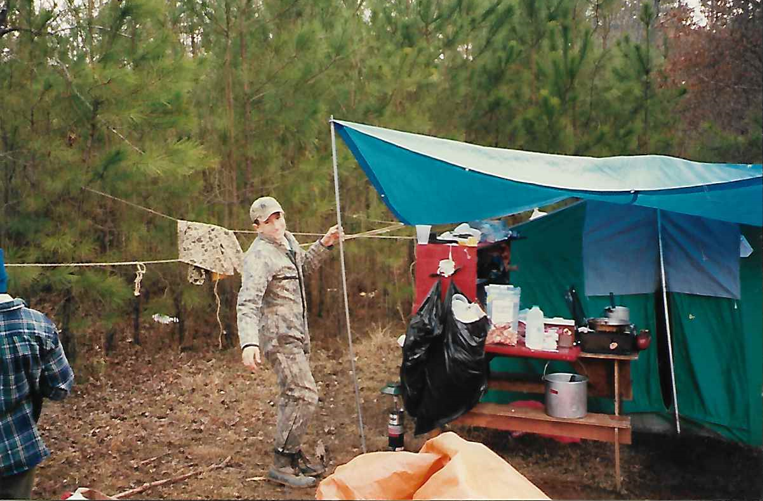
Dad was cool for having the entire cub scout group over to our basement. He bought the materials and showed us how to make the cub mobile or scooter on page 178 of the cub scout book. We raced them down the hills in our neighborhood afterwards. Cools stuff!
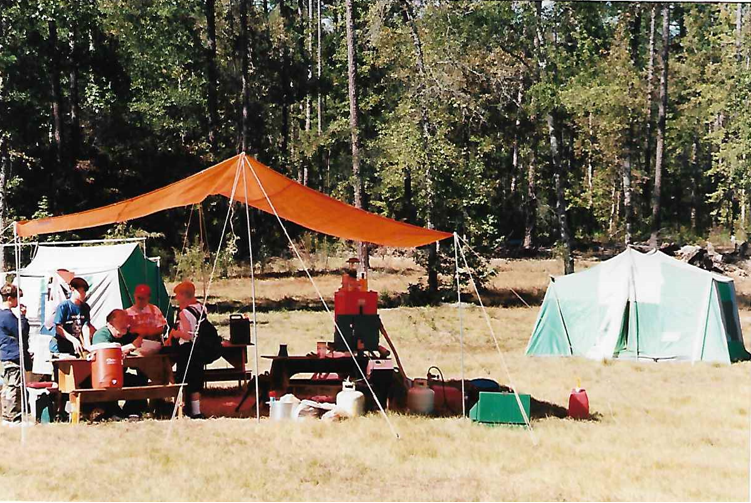
Quartermaster was a job I was pretty good at. I had to keep track of the dishes, tents, ropes and the tarps. Learned not to roll up a tarp when it was wet, or if you had to, then lay it out when you get back to try out both sides before rolling it up. Countless tarps were molded and rotten when unrolled from putting them up wet.
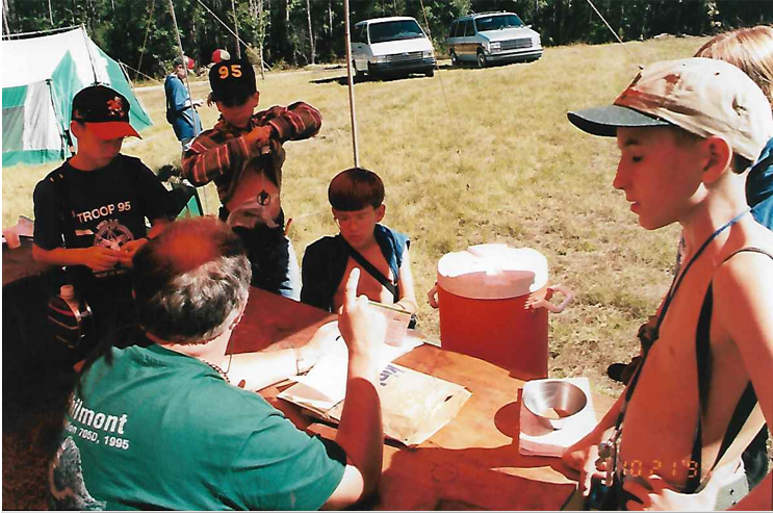
Latrine duty. I remember having to clean and check on the latrine as part of a duty. I preferred to take a shovel and go dig a cat hole any day.
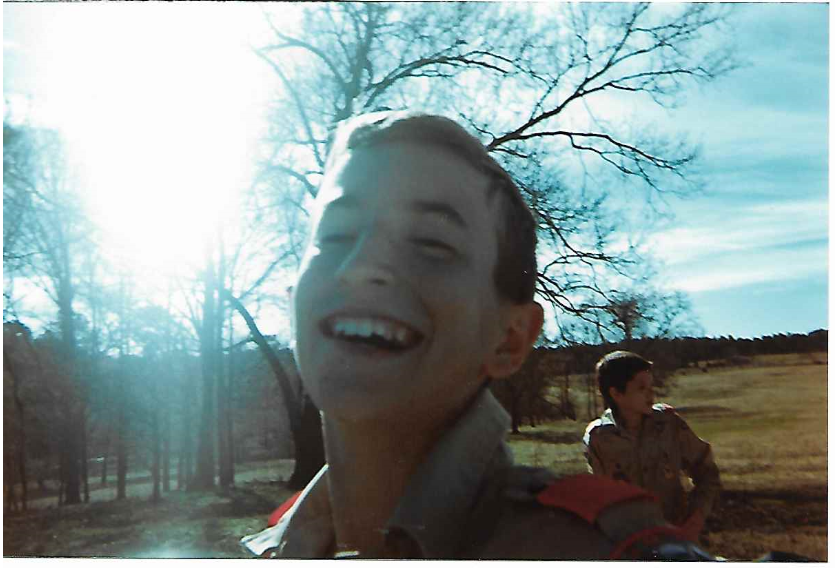
Trash bags were used sometimes as ponchos. There was a trail that rained on us the entire camp out until we got within about 100 yards of the cars, then it started to clear up and the sun shined all the way home that Sunday afternoon.
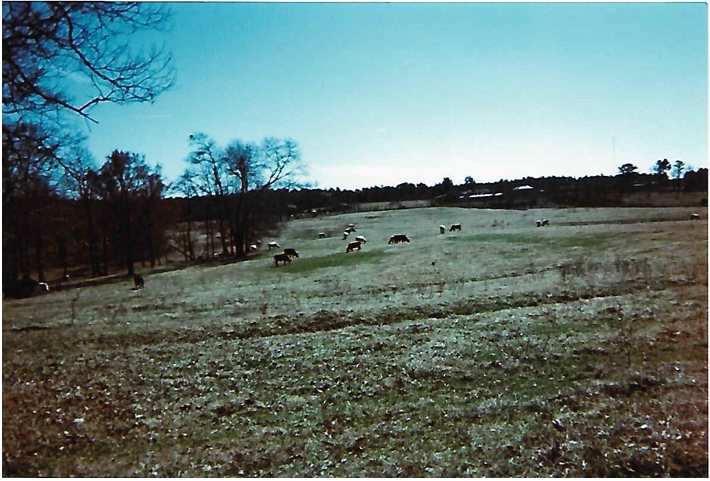
Totin Chip Certificate. In order to carry an ax safely or a hand saw you had to have a Totin Chip card in your pocket. If you violated the safety of others or carried or used the tool in a dangerous way, an adult or senior patrol leader could take your card and tear off a corner. Sometimes people got all four corners torn off and lost their ability to carry sharp things. Good idea to regulate who gets to carry around sharp tools.
We often cooked on butane and propane small backpacking stoves. I learned to respect these fuels. They can easily blow up on you. This awareness of fuels that can blow up is helpful today in some of the forensic engineering cases that our team investigates.
I learned how to put two pieces of wood or logs together by “wrapping and frapping. This is when you take two logs and make a cross or a bridge with them in a way where the ropes tighten up on themselves with pressure. We had a large army bag of ropes where we learned the proper way to wrap them up to keep them from getting to be a tangled up mess. We learned splicing of ropes, where we take two different pieces of ropes and make them into one. I also learned how to use ropes to help put up tarps quickly before a storm and in ways where they most-likely won’t blow down.
When I looked at my life, I thought, sure let’s just quit boy scouts so that I can focus on trumpet and getting first chair. I’m so glad that Dad did not let me do this impulse move. I stuck with it thankfully and got my Eagle which has helped me throughout each job.
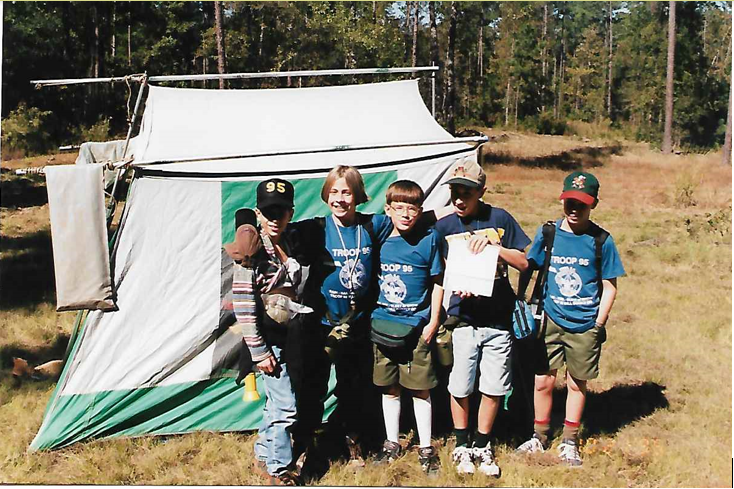
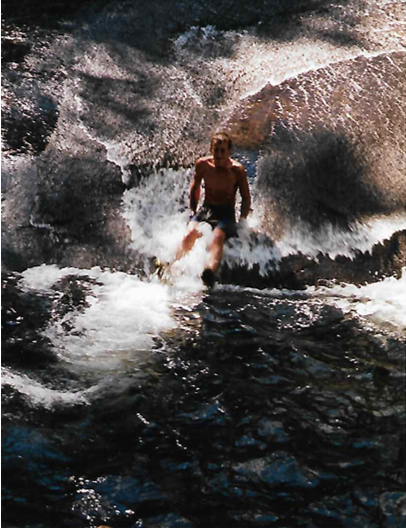
Shopping for the camp out meals with Steve Hunt for groceries was a true memory. He taught me how to buy for large amounts of people. He showed me the value of looking at the price per ounce and compare the per unit price instead of just looking and taking the face value of the price tag.
